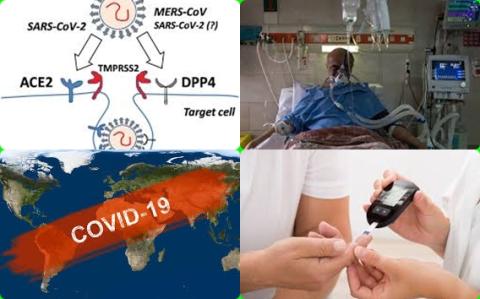
Objectives:
Few observational studies have shown a beneficial effect of dipeptidyl peptidase-4 inhibitors (DPP4i) in patients with coronavirus disease 2019 (COVID-19), although results are not consistent. Therefore, this review article has been conducted.
Does use of DPP4i reduce COVID-19 mortality among patients with diabetes mellitus (DM)?
Study design:
This review article included 9 observational studies of high quality pooling data retrieved from 7,008 COVID-19 patients with diabetes mellitus (DM).
Results and conclusions:
The investigators found pooled analysis of unadjusted and adjusted data did not show any significant association between DPP4i use and mortality in COVID-19 patients with diabetes mellitus.
The investigators found, however, on subgroup analysis, that in-hospital (and not preadmission) DPP4i use was associated with reduced mortality [unadjusted OR = 0.37, 95% CI = 0.23 to 0.58, p 0.0001, I2 = 0% and adjusted OR = 0.27, 95% CI = 0.13 to 0.55, p = 0.0003, I2 = 12%].
The investigators concluded in-hospital use of dipeptidyl peptidase-4 inhibitors (DPP4i) is associated with a significant reduction in COVID-19 mortality among patients with diabetes mellitus (DM). Hence, it would be prudent to initiate or continue DPP4i in COVID-19 patients with diabetes mellitus if not contraindicated.
Original title:
Dipeptidyl peptidase-4 inhibitor use and mortality in COVID-19 patients with diabetes mellitus: an updated systematic review and meta-analysis by Pal R, Banerjee M, […], Bhadada SK.
Link:
https://www.ncbi.nlm.nih.gov/pmc/articles/PMC7897812/
Additional information of El Mondo:
Find more information/studies on diabetes and coronavirus right here.
Dipeptidyl peptidase-4 inhibitors (DPP4i) work by blocking the action of DPP-4, an enzyme which destroys a group of gastrointestinal hormones called incretins. Incretins help stimulate the production of insulin when it is needed (e.g. after eating) and reduce the production of glucagon by the liver when it is not needed (e.g. during digestion).